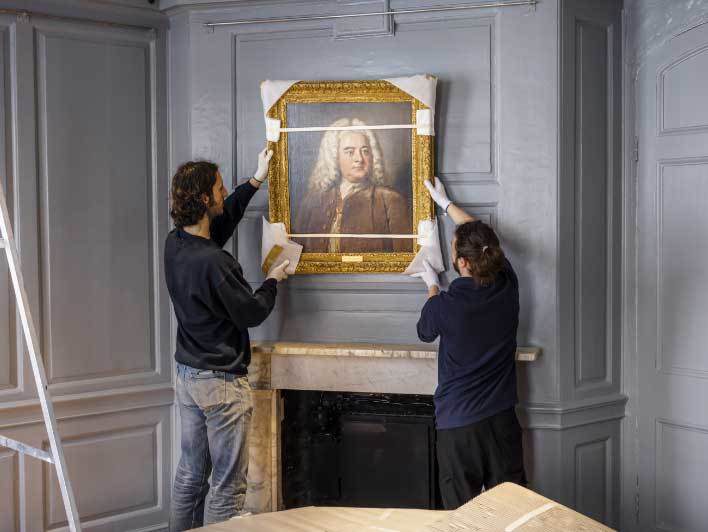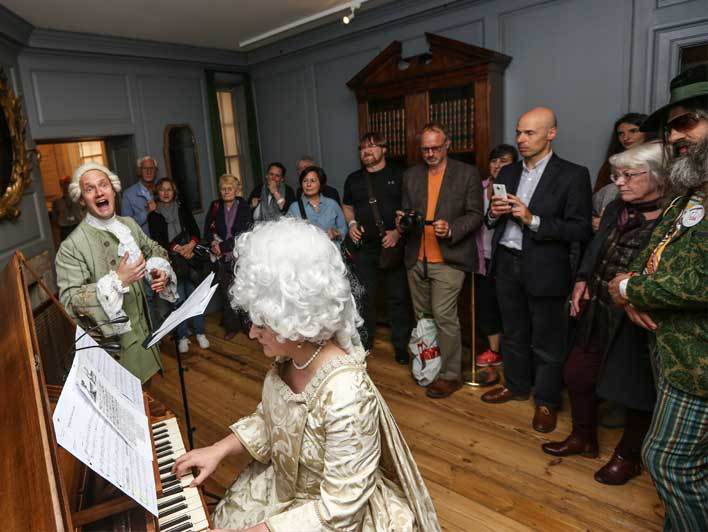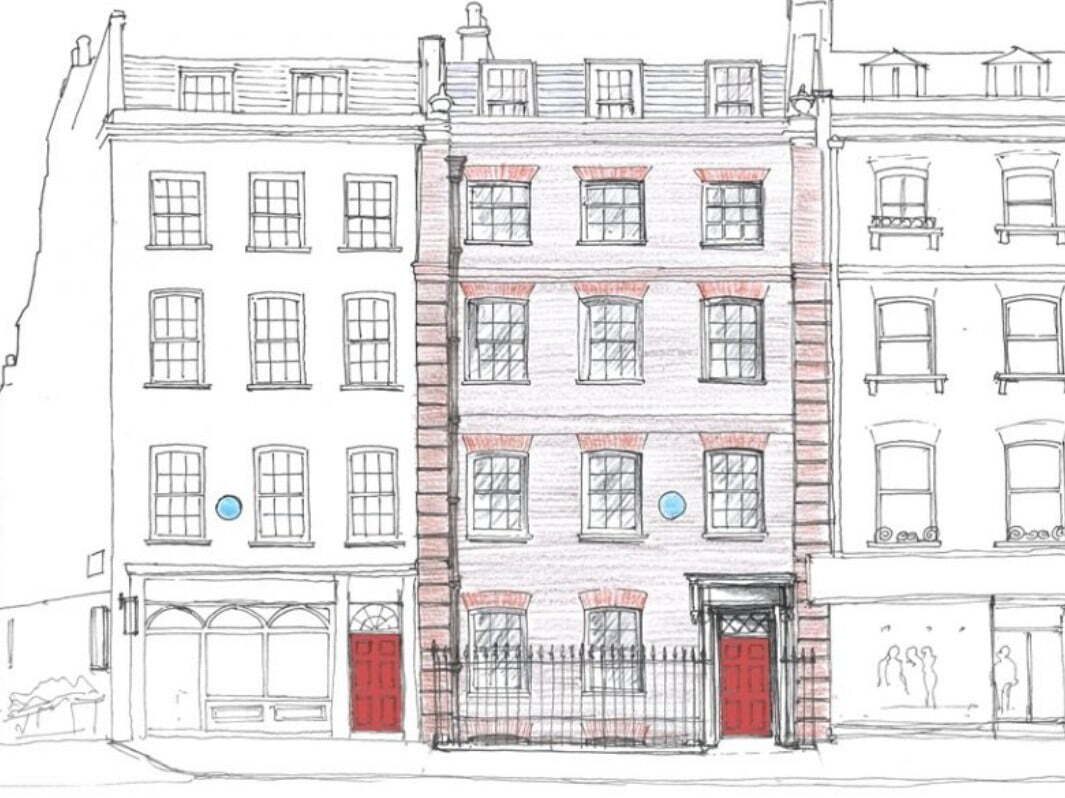OTTONE (HWV 15)
Libretto: Nicola Haym
First performance: 12th January 1723, King's Theatre, London
Cast
- Senesino (Alto castrato)
- Francesca Cuzzoni (Soprano)
- Margherita Durastanti (Soprano)
- Anastasia Robinson (Contralto)
- Gaetano Berenstadt (Alto castrato)
- Giuseppe Maria Boschi (Bass)

Synopsis
Act I
Prince Adelberto, thanks to his mother Gismonda’s scheming, is about to assume the throne of Italy. Ottone, king of Germany, is on his way to Rome to dispute Adelberto’s claim, but has been delayed by the pirate Emireno in a fierce battle. Ottone has been promised the hand of the Princess Teofane as the spoil of a previous victory, and she has arranged to meet him, for the first time, in Rome. But Teofane, already in Rome, has only a small portrait to tell her what Ottone looks like. Gismonda persuades Adelberto to present himself to Teofane, impersonating Ottone, and he assures his mother that Teofane will not recognise him. Gismonda expresses her delight that her plans are about to come to pass.
Adelberto welcomes Teofane. She is horrified by the discrepancy between the portrait in her locket and the person she actually sees before her: she wonders why she came all this way. Adelberto quickly proposes marriage as if he were Ottone. Teofane is confused and extremely upset: when finally alone she blames the portrait for deceiving her.
The real Ottone arrives, having defeated and captured the pirate Emireno. Emireno hints that he is really someone more important but refuses to tell Ottone who he actually is. Ottone sends Emireno to prison and turns his thoughts towards Teofane and his new kingdom but is interrupted by his fearsome cousin Matilda. Matilda tells Ottone of Gismonda’s scheming, of Adelberto’s designs on Teofane, and that she, Matilda, is already betrothed to Adelberto. Ottone yearns for Teofane. Matilda, alone, resolves revenge on Adelberto for breaking his word.
Gismonda is now posing as Adelaide, Ottone’s mother, and is alone with Teofane. Teofane asks Gismonda questions about her supposed son, and receives answers which of course relate to Adelberto, not Ottone. Gismonda lectures Teofane that love demands more than mere duty from the heart. Teofane does not like Adelaide’s haughty manner. Adelberto presses ahead with his suit and leads Teofane to the marriage ceremony. Gismonda intrudes with the news of Ottone’s arrival in Rome, forcefully urging the reluctant Adelberto to take arms against him. Teofane, left alone and now realizing that Adelberto is an impostor, tells of her torment.
In a short Sinfonia Ottone’s soldiers are represented in combat with Adelberto’s troops: Ottone captures Adelberto who remains defiant in defeat. Although Ottone has still not yet found Teofane, he ends the Act optimistically, declaring peace and goodwill to all parties and looking forward to both kingship and marriage.

Act II
Adelberto meets Matilda on his way to prison and she reproaches him for wooing her when he loved Teofane. Gismonda takes Adelberto to task for losing the battle with Ottone. Matilda orders Adelberto to prison, but is secretly touched by pity for him. Adelberto asks that he should learn constancy from Matilda before he is parted from her.
Matilda and Gismonda, alone together, vent their anguish over Adelberto’s fate. Matilda suggests pleading Ottone for mercy on Adelberto’s behalf. The proud Gismonda prefers death for herself and her son, but Matilda insists she will be content only with Adelberto’s freedom. When alone, Gismonda reveals that she too feels compassion.
Ottone and Teofane are about to meet at last, each fairly certain that they know who the other is, when Matilda intrudes and throws herself at Ottone’s feet, pleading on behalf of Adelberto. Teofane hides and watches as Ottone, though refusing the plea for clemency, embraces Matilda in pity. Matilda is furious at Ottone, summoning thunderbolts and monsters.
Teofane has completely misconstrued the previous scene and accuses Ottone of infidelity with Matilda. He retorts by accusing her of giving her hand in marriage to Adelberto. Teofane suggests that Ottone is no longer in love with her. Privately, Ottone cannot understand her reaction and wonders who has caused her to turn against him. He hopes that calm will return after the storm. Teofane, alone, asks the god of love for pity.
Emireno and Adelberto have escaped from prison through an underground passage, thanks to a map sent to them by Matilda. She has also informed them that a boat awaits them. Emireno asks heaven to allow him freedom again, and vows to avenge the wrongdoings he has suffered.
Emireno goes searching for the boat. Matilda and Ottone arrive separately, Matilda looking for the entrance to the tunnel and Ottone searching for Teofane. Adelberto hides at the tunnel entrance when he realizes that others are in the garden. He recognizes Ottone and then Teofane. Teofane recognizes Matilda’s voice and sees Ottone. Matilda and Ottone meet: Teofane eavesdrops. She hides in the tunnel entrance, uncomfortably, near Adelberto. Matilda dissuades Ottone from going near the tunnel entrance for fear that the escape might be foiled and her part in it discovered by Ottone. She leads him away.
Emireno returns, having found the boat and some of his men. Adelberto seizes the fainting Teofane and puts her into the boat. They row away. Gismonda sees the departure and meets the returning Matilda. Together they celebrate the success of their plan, though Matilda harbours apprehension over her deceit of Ottone. Neither is aware of Teofane’s abduction. They praise the fact that night has enabled them to carry out their plans.

Act III
Ottone laments Teofane’s disappearance. Gismonda taunts Ottone about the escape of Adelberto and Emireno with Teofane, even though she knows that she will be sentenced to death. Ottone is utterly desolate, and muses over his desertion and betrayal by everyone.
The boat and the three escapees have been unable to get very far due to a storm. Emireno suggests that they wait until the weather improves and says that he will stand guard over Teofane. Adelberto hopes not only that the weather will calm but that love too will brighten for him with Teofane.
Adelberto goes in search of shelter from the storm and Teofane tells Emireno that she is the daughter of Romano, King of Byzantium. Emireno goes to embrace her, because he is in fact her brother, Prince Basilio. This attempted embrace too gives her the wrong idea, for she believes he is attempting to seduce her. Adelberto returns at the most inopportune moment and makes the same presumption. Adelberto jealously attackes Emireno, but is overpowered by him and placed under guard. Emireno assures Teofane that she has nothing to fear.
Teofane reflects on her fate, and invites Emireno’s guard to kill her. Even though Ottone might be in Matilda’s arms she says she will never be unfaithful to him. She is still unaware of Emireno’s true identity and mistrustful of his motives.
Matilda tells Ottone that Teofane has been taken by Adelberto. Gismonda is exultant at her son’s deed, but Matilda turns on her, telling her that when Adelberto’s head is thrown at her feet her mood will change. Gismonda responds by reporting Matilda’s part in the escape to Ottone. He becomes even more despairing that even his closest allies and family are betraying him, but Matilda repents and vows to recapture Adelberto to wash the guilt from her heart. Threatening terrible vengeance, she sings that she does not mind if she kills him.
Suddenly Emireno arrives with Adelberto as his prisoner. Ottone orders Adelberto’s death at the hands of Emireno’s men but Matilda demands the right to stab him herself. However, Adelberto’s confession causes her to stop, and once again she takes pity on him. Gismonda seizes the dagger and tries to kill herself. Teofane arrives before Gismonda has time to commit the deed: Ottone and Teofane are finally united, and celebrate.
The last strands of the plot are unravelled as Teofane explains that Emireno is really her brother Basilio. Ottone finally realizes what has happened, Gismonda and Adelberto swear loyalty to their king, while Matilda again frees Adelberto and accepts his hand in marriage. The final chorus brings back peace: love finally vanquishes treachery.
ROBERT KING © 1993
Context
Ottone, Re di Germania opened the fourth season of Handel’s Royal Academy of Music Italian opera company. It was to prove to be the most successful season yet, both artistically and financially. Finally, Handel had managed to assemble the all-star cast he had been striving for – Anastasia Robinson was at the height of her fame, Senesino was praised as ‘the greatest man alive’ and a new Italian diva had joined the company. Francesca Cuzzoni had already had a spectacularly successful career in Naples and Venice, and her arrival in London was much anticipated.
But things did not start well. Handel had written the opera back in the Autumn of 1722 and Cuzzoni assumed that he originally had another singer in mind for the role of Teofane. At the first rehearsal she refused to sing the opening number, insisting that the composer provide something original written specifically for her voice. John Mainwaring, Handel’s first biographer, takes up the story:
‘Having one day some words with CUZZONI on her refusing to sing Falsa imagine in OTTONE; Oh! Madame, (said he), je sçais bien que Vous êtes une véritable Diablesse: mais je Vous ferai sçavoir, moi, que je suis Beelzebub le Chéf des Diables (I know that you are a very devil: but I must tell you, I am Beelzebub the Chief of the Devils).; With this he took her up by the waist, and, if she made any more words, swore that he would fling her out of the window.’
Cuzzoni conceded and Handel’s artistic instincts proved correct – ‘Falsa immagine’ became one of the hits of the season, and Cuzzoni continued to perform it at benefit concerts throughout her long career.
London became obsessed by Italian opera and, in an early example of touting, it was reported that tickets were changing hands for many times their face value. At the end of the season the Royal Academy was able to pay a 7% dividend to its investors, and Ottone went on to become one of Handel’s most popular operas with 34 performances over the next 10 years, second only to the 53 performances of Rinaldo during Handel’s lifetime.


